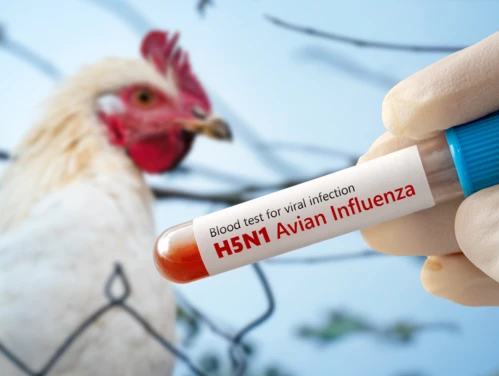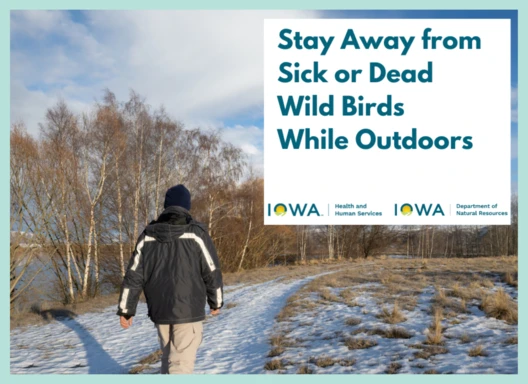On this page...
Back to top
Iowa Guidance for Dead or Sick Wild Birds
Guidance Issued by Iowa Dept. of Health and Human Services (HHS) and Iowa Dept. of Natural Resources (DNR)
What should I do if someone reports dead or sick wild birds in my community?
- Advise members of your community:
- Avoid handling sick or dead birds.
- If they must handle a dead bird (i.e. homeowner removing it from their property), advise wearing at minimum gloves and a mask, double bagging the carcass, and then performing good hand hygiene practices after contact and disposal. For disposal of the carcass in local garbage pickup or at a landfill, have the community member check with their local trash hauler for any requirements and confirm that the landfill accepts animal carcasses.
- If they report waste from sick or dead birds on their clothes or shoes, advise them to wash clothing in hot water and to disinfect shoes (after removing any contamination such as visible poop) by spraying the outside with a benzalkonium chloride based commercial disinfectant (like Lysol* spray or similar product) and allow them to dry.
- Keep your pets away from sick or dead birds.
- Do not bring sick birds home or take them to a wildlife rehabilitator.
- Avoid handling sick or dead birds.
- The Iowa Department of Natural Resources (DNR) asks those who find 5 or more sick or dead flocking birds within a week to report their findings to their local wildlife biologist or state conservation officer. DNR is also interested in reports of solitary birds or mammals.
Back to top
State Resources for Avian Influenza
- Iowa Dept. of Agriculture & Land Stewardship (IDALS) - Avian Influenza Information
- Iowa Dept. of Natural Resources (DNR) - Avian Influenza Information
- Governor's Disaster Proclamations
- Governor's HPAI Press Releases
National Resources for Avian Influenza
- U.S. Dept. of Agriculture (USDA) - Avian Influenza Resources
- USDA - HPAI Detections by State
- USDA - Hunter's Guidance for Limiting Avian Flu Exposure
- Ducks Unlimited - FAQs for Duck & Goose Hunters Regarding Avian Flu
- Centers for Disease Control (CDC) - Avian Influenza Resources
- U.S. Fish and Wildlife Service - Avian Influenza Resources

